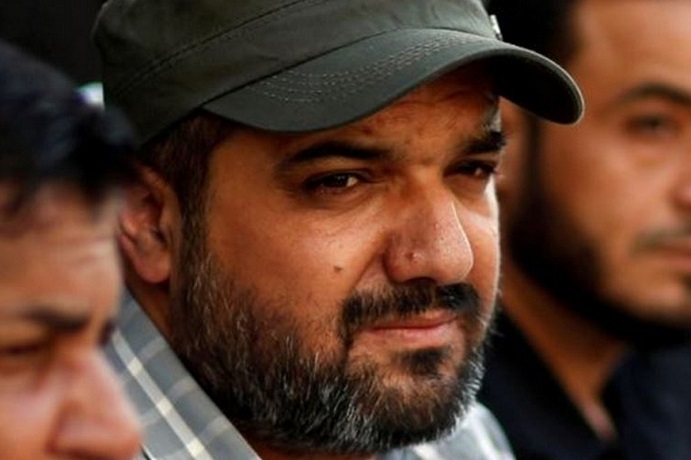
Oraib Al Rantawi
Middle East Monitor / November 13, 2019
Israel launched two attacks simultaneously on the Palestinian Islamic Jihad yesterday, one targeting Bahaa Abu Al-Ata — a senior commander of its military wing, Al-Quds Brigades — in Gaza, and the other targeting the movement’s Damascus-based political bureau member Akram Al-Ajouri. Abu Al-Ata and his wife were killed in the former, while Al-Ajouri’s son was killed in the latter.
Prime Minister Benjamin Netanyahu acknowledged his personal responsibility for ordering the two attacks. The radical new Defence Minister, Naftali Bennett, and the relatively new chief of staff, General Aviv Kochavi, were among the small group behind the operations. Netanyahu wants to save his political and personal skin at all costs, even if he is forced to ignite a fierce war against the Gaza Strip. The General and the leader of the Jewish Home Party, meanwhile, want to begin their terms in office with a bang by showing the highest level of cruelty and severity in an attempt to rebuild the Israeli army’s “deterrence factor”. They wouldn’t mind some personal and partisan gains either.
At the time of writing, the Palestinian resistance has fired 100 rockets at Israel, reaching the perimeter of Tel Aviv. Israeli warplanes and artillery have been practicing their favourite hobby by destroying homes in Gaza over their residents’ heads. The ghost of a fourth war against the Palestinians in the Gaza Strip is rearing its ugly head, despite the messages about a truce sent by Netanyahu to Hamas and Islamic Jihad officials via Egyptian intelligence.
His basic premise is this: We want a truce with the Palestinians that does not prevent us from killing their leaders whenever and wherever we want. That is the sort of truce that Netanyahu wants desperately, as does Bennett, who was appointed Defence Minister in order to prevent Benny Gantz from forming a minority government. Netanyahu wants to establish new rules of engagement in Gaza, including the rule that a truce does not prevent Israel from continuing its assassinations and attacks unilaterally. What will Egypt the mediator do about this? Will it try to pressure Netanyahu to stick to the rules of the game and rules of engagement with the Palestinians? Does it possess the skill and tools to do so? Or will it try to convince the Palestinians to let these attacks slide with minimal responses and be content with what’s happened so far?
More importantly, how will the resistance factions in Gaza react after filling the air with threats to impose their own new rules of engagement? Will they respond to the Egyptian mediator’s efforts in order to please Cairo and preserve its role, or will they cast the Egyptian mediator aside until it fulfils its promises, and teach the Israelis a lesson they won’t forget, as they have vowed and threatened repeatedly?
Netanyahu is dying politically and needs a miracle to save him from being prosecuted by the Attorney General on charges of corruption, fraud, and abuse of his position. A war on Gaza may be good for him. Kochavi, who promotes the theory of “systematic destruction of the enemy”, needs the opportunity to translate his theory into practice; he wants to defeat the Palestinians and not just restore the deterrent image of the occupation army. Naftali Bennett is from the “Arabs are cockroaches” school of thought and he is no less passionate about using the power of his new position to fulfil his dark dreams of killing and displacing more Palestinians. The decision about war or peace is in the hands of these three individuals and each one has what is in their eyes a “good” reason to pour more fuel onto the fire in Gaza.
Israel is on the verge of a yet another General Election, the third within twelve months, and a full-blown war on Gaza could be the key for Netanyahu and Bennett to improve their popularity at the polls. The Palestinians in Gaza, however, will have ideas of their own and will be keen to prove that they are not a passive punch bag, but are capable of turning the magic on the magicians.
Oraib Al Rantawi is the founder and director general of the Amman-based Al Quds Center for Political Studies and an established writer and columnist. He has authored and edited several strategic studies and organized and participated in seminars and conferences in Jordan and internationally. He is also a frequent commentator and analyst on television and has produced his own show “Qadaya wa Ahdath” (Issues and Events.)












